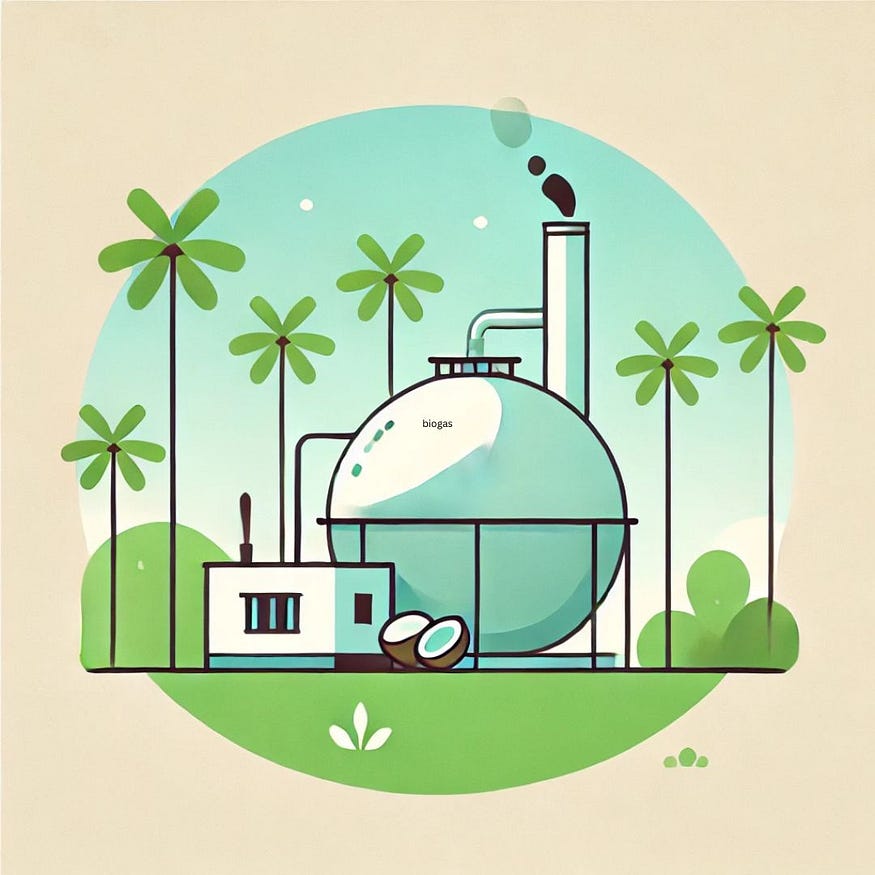Biogas in Kerala: Revolutionizing Energy with Compression and Oxygen Generation

In the realm of renewable energy, biogas in Kerala has emerged as a sustainable solution to address waste management and energy needs. With advancements in technology, biogas plants are now exploring innovative methods like biogas compression and oxygen generation, transforming the way energy is produced and utilized.
What Is Biogas Compression?
Biogas compression involves compressing the raw biogas generated from organic waste into a high-pressure form for storage and transportation. This process not only makes biogas more accessible but also enhances its usability in various applications, such as cooking, heating, and even as a fuel for vehicles.
In Kerala, biogas compression is gaining attention as it addresses challenges like the inconsistent supply of raw biogas and storage limitations. By compressing biogas, plants can supply it to remote areas, ensuring efficient energy distribution.
Oxygen Generation in Biogas Plants
Another groundbreaking innovation in biogas in Kerala is the integration of oxygen generation systems. Oxygen plays a crucial role in enhancing the efficiency of biogas production. By injecting oxygen into the anaerobic digestion process, biogas plants can:
- Increase Methane Content: Higher oxygen levels result in better microbial activity, leading to an increased percentage of methane in biogas.
- Improve Digestion Efficiency: Oxygen-enriched environments speed up the decomposition of organic matter, reducing the time required for biogas production.
- Reduce Contaminants: Oxygenation minimizes impurities like hydrogen sulfide, improving the quality of the biogas produced.
The Role of Biogas in Kerala’s Energy Landscape
Kerala’s reliance on imported energy sources makes the adoption of renewable energy solutions like biogas crucial. With a high population density and substantial organic waste generation, the state has immense potential to harness biogas. By incorporating technologies like compression and oxygen generation, biogas in Kerala can:
- Provide a cleaner alternative to traditional fossil fuels.
- Reduce greenhouse gas emissions and promote environmental sustainability.
- Create opportunities for decentralized energy production, benefiting rural and urban areas alike.
Benefits of Advancing Biogas Technologies
- Energy Efficiency: Compressed biogas can be stored for longer periods and transported easily, ensuring a steady energy supply.
- Economic Growth: Encouraging the adoption of advanced biogas technologies can create job opportunities and foster local businesses in Kerala.
- Environmental Protection: By utilizing organic waste and reducing dependency on fossil fuels, biogas plants contribute to Kerala’s efforts to combat climate change.
Challenges and Solutions
Despite the numerous advantages, biogas plants in Kerala face challenges such as:
- High Initial Costs: Setting up advanced biogas facilities requires significant investment.
- Lack of Awareness: Educating communities about the benefits of biogas and its applications is essential.
- Policy Support: Government incentives and subsidies can accelerate the adoption of advanced biogas technologies.
Addressing these challenges through collaborative efforts between policymakers, businesses, and communities can unlock the full potential of biogas in Kerala.
Conclusion
The integration of biogas compression and oxygen generation represents a new frontier in Kerala’s renewable energy journey. These innovations not only enhance the efficiency and usability of biogas but also position Kerala as a leader in sustainable energy practices. By embracing these advancements, the state can pave the way for a greener and more energy-independent future, demonstrating the transformative power of biogas in Kerala.

Comments
Post a Comment